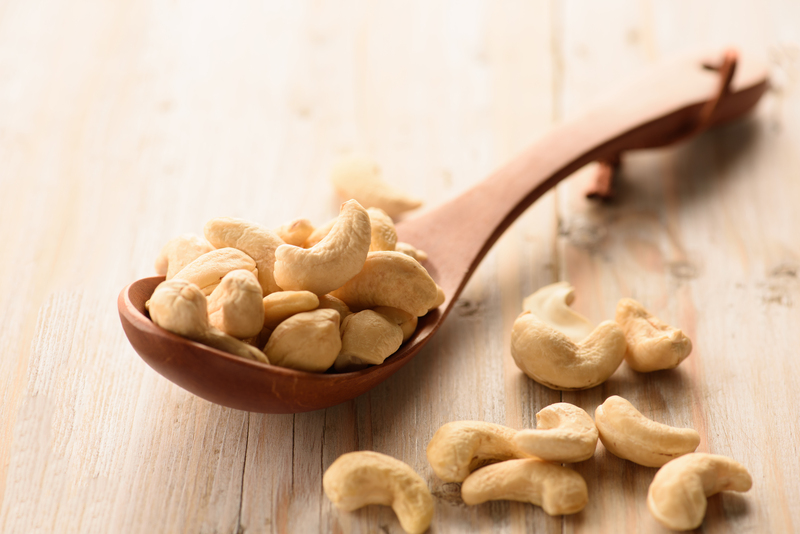Where to Take Pots and Pans for Responsible Disposal: Ultimate Guide
_Disposing of old cookware responsibly can be confusing. If you're wondering where to take pots and pans for responsible disposal, you are not alone! Millions of households face the dilemma of what to do when their non-stick coating peels, their pans warp, or when a once-cherished saucepan simply needs to go. This comprehensive, SEO-optimized guide will walk you through all your best eco-friendly options, ensuring you minimize waste and support a cleaner planet._

Why Proper Disposal of Pots and Pans Matters
Many people are unaware that pots and pans disposal requires careful consideration. Traditional cookware is often made of metal, non-stick coatings, or even plastics, all of which can harm the environment if sent straight to landfill. Besides reducing landfill waste, responsible cookware disposal methods can also support recycling efforts, charitable giving, and even creative reuse!
The Environmental Impact of Unwise Cookware Disposal
- Non-biodegradable Materials: Most pots and pans are made of metals that do not break down in the environment.
- Release of Toxic Chemicals: Non-stick coatings (like Teflon) may release harmful substances when incinerated or improperly disposed of.
- Resource Waste: Metals are recyclable; throwing them away wastes valuable materials.
How to Assess Your Old Pots and Pans
Before disposing of old cookware, evaluate their condition. Sometimes, what seems like junk to you could be useful to others or repurposed creatively!
- Light Wear or Scratches: Still usable; consider donation.
- Peeling Coating or Severe Warping: Best suited for recycling or specialized disposal.
- Broken Handles or Cracks: May be repairable or recyclable.
Where to Recycle Pots and Pans: Your Top Options
1. Local Scrap Metal Recycling Centers
_Scrap yards and metal recycling centers_ are often the first places that come to mind when asking where can I take pots and pans to be recycled? Most pots and pans (such as aluminum, cast iron, stainless steel, and copper) can be recycled as scrap metal - even if they have plastic or wooden handles.
- Call ahead: Some centers require you to separate materials (i.e., metal pan from plastic handle).
- Remove non-metal parts: Use a screwdriver to detach handles before recycling.
- Check for non-stick coating: Some facilities only accept bare metal; ask in advance.
How to Find a Nearby Scrap Metal Recycling Center
Use online directories like Earth911 or recyclingcenters.org to search "scrap metal near me." Enter your ZIP code and see which locations accept cookware.
2. Curbside Recycling Programs
Some municipalities offer curbside recycling for pots and pans made of metal. Always double-check with your local recycling provider, as requirements and accepted materials vary by city.
- Do not bag: Place metal cookware openly in the bin.
- No non-stick: Facilities often reject Teflon-coated pans for curbside collection.
- Remove food: Thoroughly clean before recycling.
Contacting Your Municipality
Call or visit your town's sanitation department website. Search for "recycling guidelines" or "metal items" for specifics.
3. Donation to Charities and Community Organizations
If your used pots and pans are still serviceable, donate them to give them a new life! Homeless shelters, refugee resettlement agencies, thrift stores, and community centers often accept such items with gratitude.
- Functional only: Damaged or flaking cookware is not suitable for donation.
- Local thrift stores: Salvation Army, Goodwill, Neighborhood House, and similar organizations.
- Daycare centers, churches, community kitchens may need extra pans.
Creative Repurposing of Old Pots and Pans
Before you think about where to dispose of pots and pans, consider giving them a second life at home or work.
4. DIY Projects and Upcycling
- Planters: Poke drainage holes and use old pots for plants.
- Birdbaths: Repurpose large pans as shallow water basins for birds.
- Storage containers: Use deep pots for holding garden tools or art supplies.
- Wall decor: Hang decorative or vintage pans as kitchen art.
- Serving trays: Line and use clean, shallow cookware for serving at parties.
_Upcycling_ is an imaginative and sustainable way to avoid waste, showcasing creativity while reducing the load on our landfills.
Specialty Options: What to Do with Non-Stick and Teflon-Coated Cookware
Finding where to take non-stick pans for disposal is trickier. Non-stick coatings complicate recycling, making these pans unwelcome at many facilities. Here are your best options:
5. Mail-Back Recycling Programs
- TerraCycle: This innovative company offers Zero Waste Boxes for cookware, including non-stick pans, for a fee. Visit TerraCycle for details.
- Manufacturer Take-Back: Some brands (like Calphalon) may offer take-back programs for their old products. Check their official websites and customer support pages.
6. Hazardous Waste Collection Events
Some municipal waste departments host special collection days for items not accepted in regular curbside recycling bins. Call your local waste management office and ask if non-stick cookware fits their household hazardous waste events.
If All Else Fails: Landfilling Responsibly
If you've exhausted recycling and donation options, place the pans in your regular trash. Double-bag items with peeling Teflon to minimize health risks to sanitation workers. Remember, this should be a last resort!
Retail Take-Back Programs: Trade-Ins and Buybacks
A surprising number of retailers now encourage responsible cookware disposal by offering trade-in or recycling options.
7. Major Retailer Initiatives
- Crate & Barrel: Accepts old cookware during special recycling drives in select locations.
- Target & Bed Bath & Beyond: Sometimes offer recycling events or discounts for turning in old cookware--check your local store's events calendar.
- Specialty kitchen shops: Kitchenware stores occasionally sponsor Earth Day or recycling weeks. Subscribe to newsletters for notifications.
Frequently Asked Questions About Disposing of Pots and Pans
Can You Put Pots and Pans in the Recycling Bin?
- Depends on Local Policy: Many do not accept cookware at curbside. Always check first!
- Remove Non-Metal Features: Handles and plastic lids must be detached.
Are Nonstick Pans Recyclable?
- Generally, No: Standard recycling centers reject pans with coatings.
- Specialty Options: Try TerraCycle, mail-back, or hazardous waste programs.
What Should You Never Do with Old Pots and Pans?
- Don't Leave on Curb: They'll likely go to landfill or be scavenged unsafely.
- Don't Dump in Nature: It's illegal and highly polluting.
- Avoid Burning: Metal cannot be burned, and coatings release toxins.
How to Prepare Pots and Pans for Recycling or Donation
- Clean thoroughly: No food residue or bread crusts.
- Remove loose parts: Handles, knobs, or lids may need separate disposal.
- Sort by material: Separate aluminum and stainless steel, if required by the recycler.
- Bundle safely: Group small items together so they're not lost or hazardous.

Summary: Choosing Where to Take Old Cookware for Responsible Disposal
_Deciding where to take pots and pans for responsible disposal_ may require a little research, but your environmental impact will be worth it. Consider the following key takeaways:
- Recycle metal-free pans at local scrap yards or curbside programs (check first!)
- Donate usable cookware to thrift stores, shelters, or community groups.
- Upcycle old pans for planters or household storage if you're crafty.
- Dispose of coated (Teflon/non-stick) cookware through specialty recycling or hazardous waste programs.
- Check retail stores for trade-in or buyback events.
Final Thoughts: Be a Green Cookware Consumer!
Making a conscious effort to properly dispose of pots and pans extends their usefulness and _reduces their environmental footprint_. Next time you replace a skillet or saute pan, explore all the options--from recycling and donation to creative reuse--before sending them to the landfill. The planet (and future generations of home cooks) will thank you!
Have questions or success stories about disposing of old pans or pots? Share your tips and experiences in the comments below and help build a greener community!